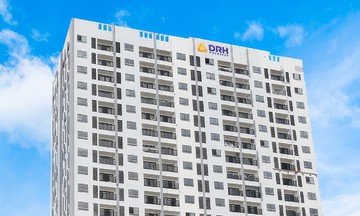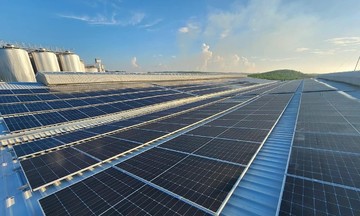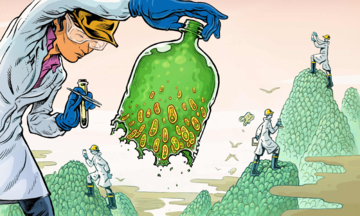Once a small-scale harvesting activity, swiftlet farming has gradually become an important economic sector in Can Gio. Not only does it generate income for residents, but swiftlet products are also featured in the One Commune One Product (OCOP) program, opening up opportunities for sustainable development. The natural advantages of the biosphere reserve, the cooperative model, and the orientation towards ecotourism are helping Can Gio's swiftlet farming contribute to the development of urban agriculture in Ho Chi Minh City.
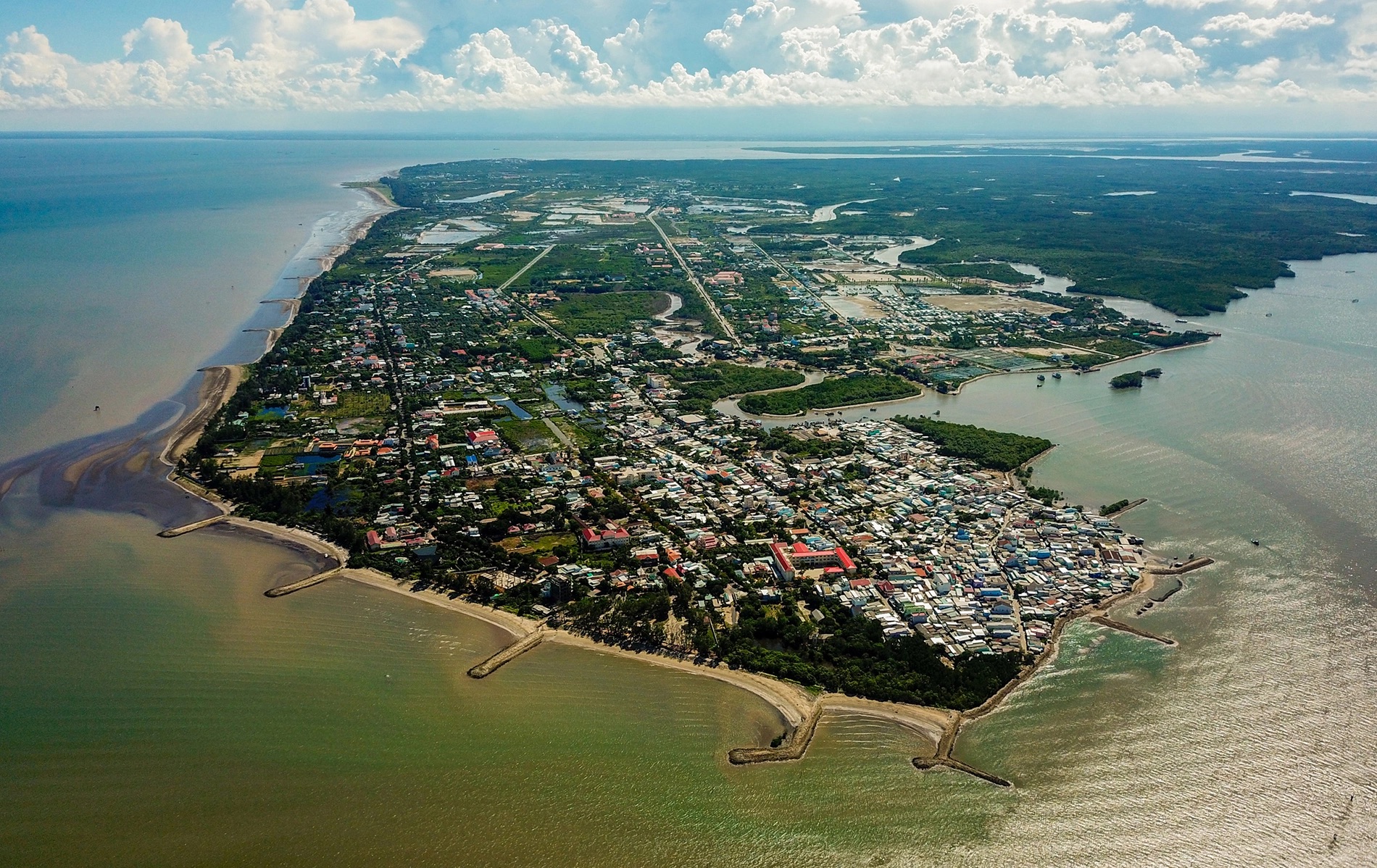 |
An aerial view of Can Gio. Photo: Can Gio |
An aerial view of Can Gio. Photo: Can Gio
Favorable natural conditions
Can Gio is the only coastal district of Ho Chi Minh City and is also recognized by UNESCO as a World Biosphere Reserve. With its characteristic mangrove ecosystem, fresh climate, and abundant natural food sources, it creates a suitable environment for swiftlets to thrive.
These factors have helped Can Gio form a distinctive swiftlet farming area. Swiftlet nest products are recognized not only for their consistent quality but also for their nutritional content, which meets increasingly diverse healthcare needs. According to experts, swiftlet nests contain a high amount of protein and 18 essential amino acids. From raw nests, various products have been processed, such as ready-to-serve bird's nest soup, bird's nest jelly, refined bird's nest, and fresh bird's nest, expanding the choices for domestic and international consumers.
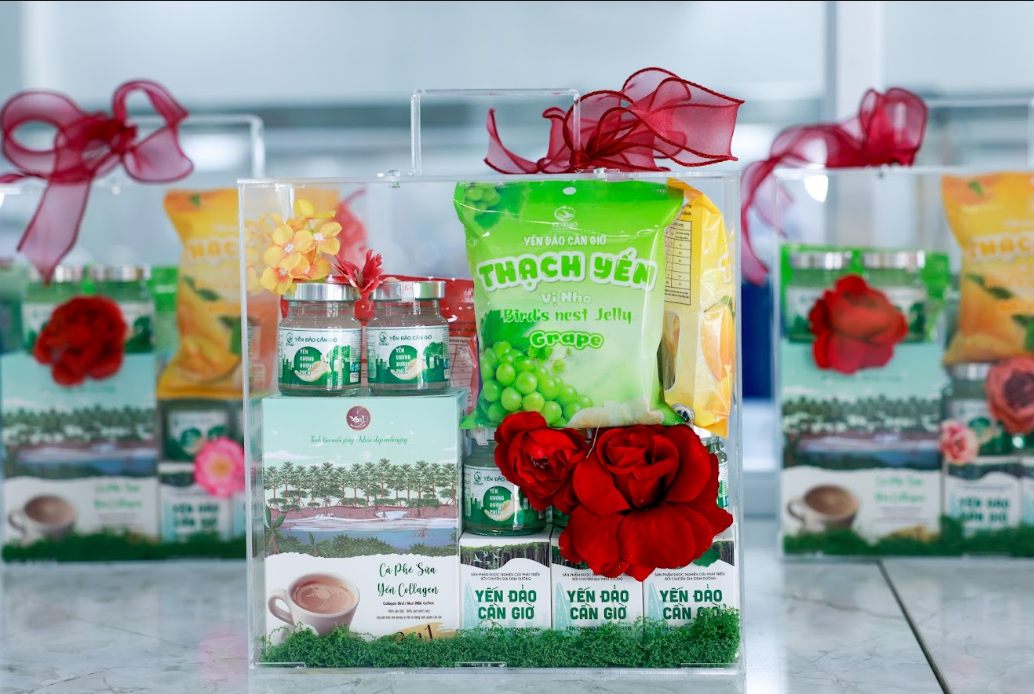 |
A gift basket with a variety of swiftlet nest products caters to the diverse needs of domestic and international consumers. Photo: Department of Industry and Trade of Ho Chi Minh City |
A gift basket with a variety of swiftlet nest products caters to the diverse needs of domestic and international consumers. Photo: Department of Industry and Trade of Ho Chi Minh City
Swiftlet farming cooperative model
A key factor in the development of swiftlet farming in Can Gio is the cooperative model. Instead of farming individually, households join together to form cooperatives to apply technology and food safety standards, and share the consumer market.
Cooperatives such as Thuan Yen and Can Gio Tuong Lai have successfully built their brands based on pure swiftlet nests and further processed product lines. This model helps farmers stabilize output, increase income, and minimize environmental impact through more centralized and scientific management. It is also a suitable approach in the urban agriculture development process that Ho Chi Minh City is implementing.
Participating in the OCOP program
The One Commune One Product (OCOP) program, implemented by Ho Chi Minh City since 2019, is one of six specialized programs serving the goal of new rural development. Through this program, many local specialty products are standardized, thereby affirming their quality and brand.
As of June of this year, the entire city has over 400 OCOP products certified with 3 and 4 stars, with Can Gio contributing 40 4-star OCOP swiftlet nest products. Many local brands like Yen Dao Can Gio and Khanh Dan Bird's Nest have invested in processing lines and product diversification. This is an important step for Can Gio swiftlet nest brands to expand their markets and compete with similar products domestically and internationally.
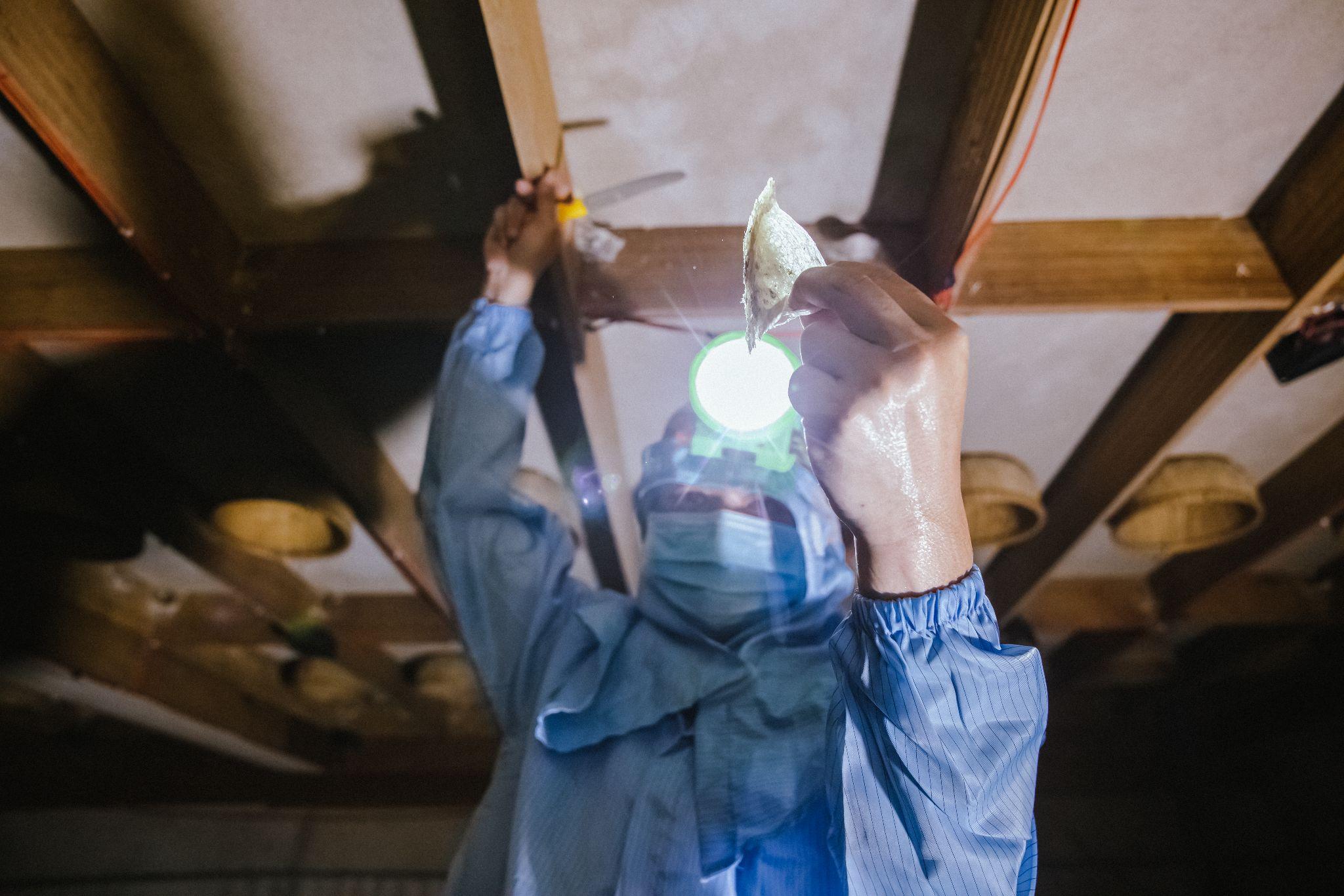 |
Harvested bird's nest soup at a bird's nest production facility in Can Gio, Ho Chi Minh City. Photo: Department of Industry and Trade of Ho Chi Minh City |
Harvested bird's nest soup at a bird's nest production facility in Can Gio, Ho Chi Minh City. Photo: Department of Industry and Trade of Ho Chi Minh City
Linking with ecotourism
In addition to its economic value, swiftlet farming in Can Gio is also linked to ecotourism. Several destinations have developed swiftlet house tours, showcasing the process of raising and harvesting swiftlet nests, combined with the experience of enjoying swiftlet nest dishes and drinks.
This model helps promote products and creates additional services for the local tourism industry. The combination of swiftlet farming and ecotourism development also contributes to spreading the message of nature conservation and resource exploitation linked to sustainable development.
(Source: Department of Industry and Trade of Ho Chi Minh City)



